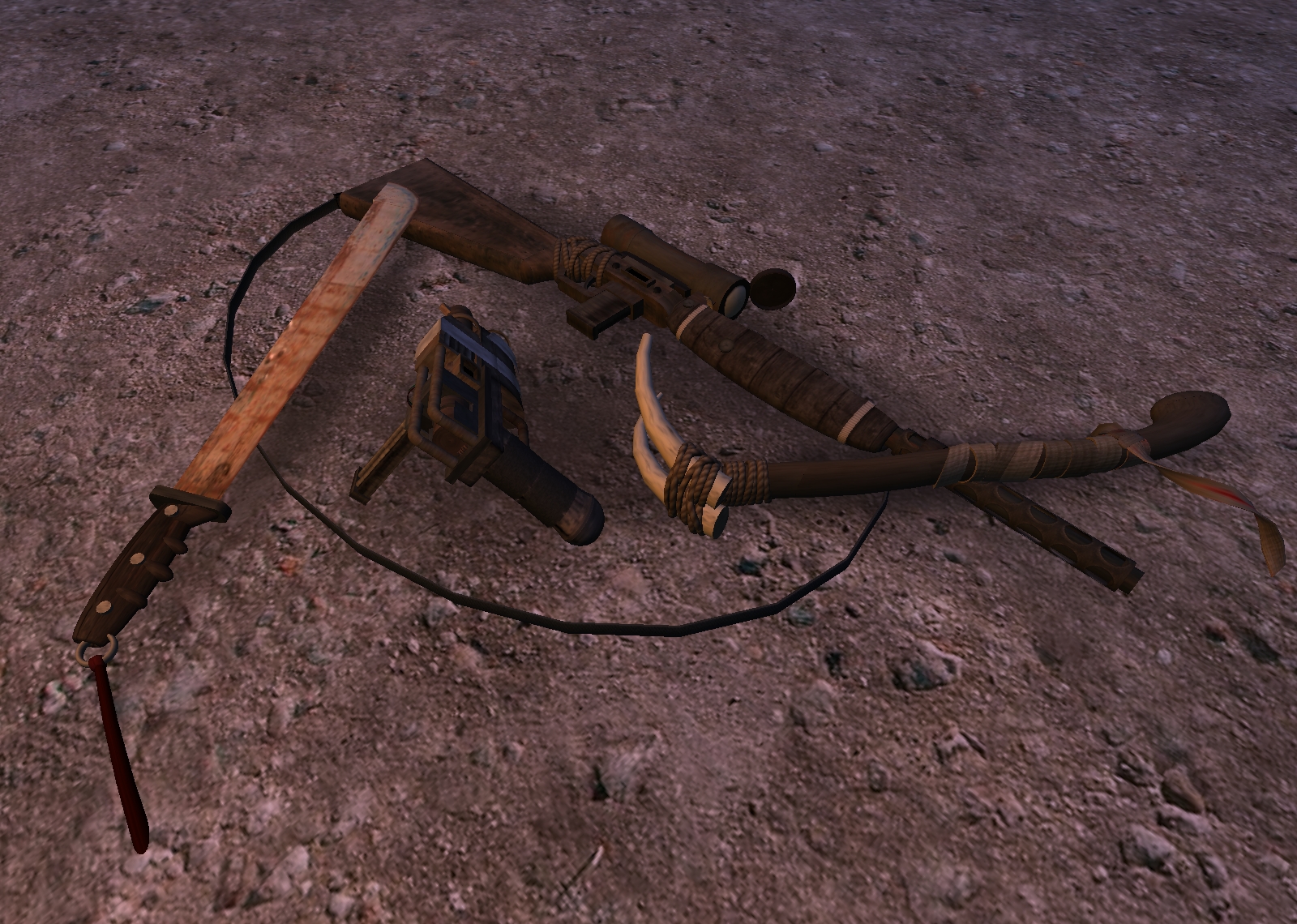
((Editor’s Note: The Mean Streets series of columns will typically focus on group tactics in scavenging, warfare, and trade. Specific factions of memorable impact, notable influence, and enduring sustainability will also be reported on in the future. Kezz Mauriac, a notable veteran of the Wastelands, will be taking over this column for the most part. Abrupt and sometimes surly but always honest, Kezz has carefully noted and observed many factions rise and fall since the beginning of the Wastelands. Future factions would do well to consider his first-hand experiences and gruff observations I’ve requested for the Press. It’s worth mentioning that some of the recent factions are already rising up to the challenges written below with impressive potential! – Sandusky))
Tribals to the south. The mutant clans to the west. Raiders and nomads without homes. They always seem to find their way here, and for good reason. The salvagers are the most valuable thing we have, capable of turning any group of ragged scags into an army, and we’ve got more people than ever coming in trying to do just that.
Seems these days, you can’t walk a hundred feet without bumping into some newcomers looking to set up shop, so to speak. They dig themselves a hole, grab a few buddies, and start painting weird symbols over everything and suddenly a new faction has been born, added to the legions already competing over each other for whatever they can get.
What the new clans and factions might not realize, though, are the ways the clans of the past ran things, and how they worked so well. The Clubs, the Desert Rangers, the Reavers, even the Hellboxers all held the wastelands by the throat in their day. If any one of them were still around today, the newcomers just might learn to do the same.
See, the old timers had a few things most of these new groups lack. Things like teamwork, tactics, planning things out, even conducting some diplomacy and espionage. Instead of just rising up under a name for the sake of doing so, they’d spend their days training in the ways of fighting. They’d send out groups of people on salvaging runs, so they could cover more ground and protect each other like no single person could. The smarter ones in the group would spend all their time in front of that salvaging machine, conducting research for the good of the whole.
When things went south and a rival started giving them trouble, they wouldn’t just throw themselves at their foe in a blind rush. They’d plan things out, make sure they had the upper hand before they attacked. The craftier groups would spy on their enemies to learn who the main players were, and systematically take them out, weakening the enemy as a whole.
A band of newcomers wanting to start a faction would be wise to learn the lessons of the people that came before them. Work as a team. Train with your mates and make sure everyone knows what their duties are. Make sure that you can trust someone before you let them in.
If a group plays it smart and follows the tips learned from the old factions long gone, they might just have a shot at leaving a name that people remember in legends when we’re all history.

